第16章 CHAPTER IV(1)
THE INDIAN CAMP--THE SORTIE FROM THE FORT
HEADQUARTERS, MORELLA: October 3, 1838
It is a balmy night. I hear the merry jingle of the tambourine, and the cheery voices of the girls and peasants, as they dance beneath my casement, under the shadow of the clustering vines. The laugh and song pass gaily round, and even at this distance I can distinguish the elegant form of Ramon Cabrera, as he whispers gay nothings in the ears of the Andalusian girls, or joins in the thrilling chorus of Riego's hymn, which is ever and anon vociferated by the enthusiastic soldiery of Carlos Quinto. I am alone, in the most inaccessible and most bomb-proof tower of our little fortalice; the large casements are open--the wind, as it enters, whispers in my ear its odorous recollections of the orange grove and the myrtle bower. My torch (a branch of the fragrant cedar-tree) flares and flickers in the midnight breeze, and disperses its scent and burning splinters on my scroll and the desk where I write--meet implements for a soldier's authorship!--it is CARTRIDGE paper over which my pen runs so glibly, and a yawning barrel of gunpowder forms my rough writing-table. Around me, below me, above me, all--all is peace! I think, as I sit here so lonely, on my country, England! and muse over the sweet and bitter recollections of my early days! Let me resume my narrative, at the point where (interrupted by the authoritative summons of war) I paused on the last occasion.
I left off, I think--(for I am a thousand miles away from proof-sheets as I write, and, were I not writing the simple TRUTH, must contradict myself a thousand times in the course of my tale)--I think, I say, that I left off at that period of my story, when, Holkar being before Futtyghur, and I in command of that fortress, I had just been compelled to make away with his messenger: and, dressed in the fallen Indian's accoutrements, went forth to reconnoitre the force, and, if possible, to learn the intentions of the enemy. However much my figure might have resembled that of the Pitan, and, disguised in his armour, might have deceived the lynx-eyed Mahrattas, into whose camp I was about to plunge, it was evident that a single glance at my fair face and auburn beard would have undeceived the dullest blockhead in Holkar's army. Seizing, then, a bottle of Burgess's walnut catsup, I dyed my face and my hands, and, with the simple aid of a flask of Warren's jet, I made my hair and beard as black as ebony. The Indian's helmet and chain hood covered likewise a great part of my face, and I hoped thus, with luck, impudence, and a complete command of all the Eastern dialects and languages, from Burmah to Afghanistan, to pass scot-free through this somewhat dangerous ordeal.
I had not the word of the night, it is true--but I trusted to good fortune for that, and passed boldly out of the fortress, bearing the flag of truce as before; I had scarcely passed on a couple of hundred yards, when lo! a party of Indian horsemen, armed like him I had just overcome, trotted towards me. One was leading a noble white charger, and no sooner did he see me than, dismounting from his own horse, and giving the rein to a companion, he advanced to meet me with the charger; a second fellow likewise dismounted and followed the first: one held the bridle of the horse, while the other (with a multitude of salaams, aleikums, and other genuflexions) held the jewelled stirrup, and kneeling, waited until I should mount.
I took the hint at once: the Indian who had come up to the fort was a great man--that was evident; I walked on with a majestic air, gathered up the velvet reins, and sprung into the magnificent high-peaked saddle. "Buk, buk," said I. "It is good. In the name of the forty-nine Imaums, let us ride on." And the whole party set off at a brisk trot, I keeping silence, and thinking with no little trepidation of what I was about to encounter.
As we rode along, I heard two of the men commenting upon my unusual silence (for I suppose, I--that is the Indian--was a talkative officer). "The lips of the Bahawder are closed," said one. "Where are those birds of Paradise, his long-tailed words? they are imprisoned between the golden bars of his teeth!"
"Kush," said his companion, "be quiet! Bobbachy Bahawder has seen the dreadful Feringhee, Gahagan Khan Gujputi, the elephant-lord, whose sword reaps the harvest of death; there is but one champion who can wear the papooshes of the elephant-slayer--it is Bobbachy Bahawder!"
"You speak truly, Puneeree Muckun, the Bahawder ruminates on the words of the unbeliever: he is an ostrich, and hatches the eggs of his thoughts."
"Bekhusm! on my nose be it! May the young birds, his actions, be strong and swift in flight."
"May they DIGEST IRON!" said Puneeree Muckun, who was evidently a wag in his way.
"O--ho!" thought I, as suddenly the light flashed upon me. "It was, then, the famous Bobbachy Bahawder whom I overcame just now! and he is the man destined to stand in my slippers, is he?" and I was at that very moment standing in his own! Such are the chances and changes that fall to the lot of the soldier!